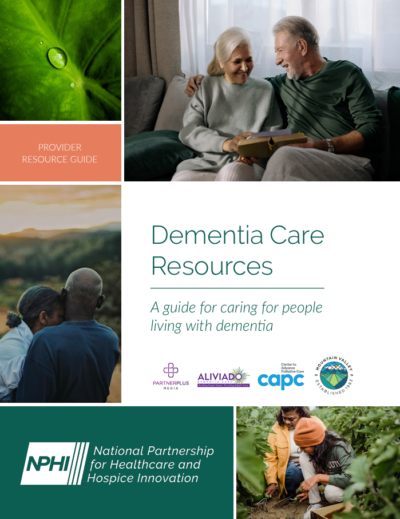Individualized Dementia Care Charlotte: Comprehending Your Loved One's Unique Demands
Individualized Dementia Care Charlotte: Comprehending Your Loved One's Unique Demands
Blog Article
How to Give Purposeful and Personalized Mental deterioration Treatment
The provision of significant and customized mental deterioration care requires a nuanced understanding of each individual's one-of-a-kind background and choices. Care techniques need to be customized to involve the person in methods that reverberate with their previous experiences, therefore fostering psychological connections and boosting overall well-being.
Understanding Mental Deterioration Originality

Treatment companies must evaluate cognitive capabilities, emotional states, and behavior patterns to produce customized treatment plans. This might include adapting interaction styles, employing familiar routines, and using meaningful tasks that reverberate with the individual's previous experiences. As an example, engaging a person with an enthusiasm for songs with music activities may evoke positive memories and enhance psychological well-being.
Furthermore, understanding individuality fosters a thoughtful method that appreciates the dignity and freedom of those coping with dementia. It encourages caregivers to pay attention actively, observe behavioral signs, and remain adaptable in their caregiving strategies (charlotte care home). By focusing on individuality, caregivers can not only boost the high quality of life for those with mental deterioration yet also construct a more profound understanding of their distinct perspectives, inevitably causing more effective and understanding treatment
Structure Trust Fund and Rapport
Developing count on and rapport is basic in mental deterioration care, as it creates a risk-free and supportive atmosphere for individuals influenced by the condition. Building these connections calls for consistent, compassionate interactions that prioritize the needs and feelings of the person. Caregivers must approach interactions with empathy, acknowledging the one-of-a-kind challenges dealt with by those with mental deterioration, including memory loss, confusion, and emotional distress.
Effective interaction is crucial in this procedure. Caretakers ought to use clear, straightforward language and non-verbal hints to communicate understanding and support. Active listening demonstrates respect and validation, enabling people to reveal themselves without worry of judgment. Furthermore, preserving a tranquil attitude can aid reduce anxiousness, cultivating a complacency.
Familiarity with daily tasks and caretakers promotes a sense of security, allowing people to really feel more at convenience. By doing so, caregivers strengthen the individual's identification, promoting dignity and respect, ultimately leading to stronger, a lot more significant partnerships in the context of dementia treatment.
Tailoring Tasks and Interaction
Involving individuals with mental deterioration via customized tasks can considerably improve their lifestyle and cultivate a much deeper link between caretakers and those in their treatment. Personalization is essential, as it recognizes the one-of-a-kind backgrounds, rate of interests, and capacities of each person. Activities ought to be created to stimulate cognitive functions, advertise physical movement, and encourage social communication, all while continuing to be pleasurable and satisfying.
To customize activities effectively, it is essential to assess the person's preferences and cognitive capabilities. Additionally, including aspects of routine can provide comfort and security, allowing individuals to involve with activities more confidently.
Caregivers can boost interaction by taking part along with the people, cultivating an interactive and helpful environment. It is additionally essential to continue to be adaptable and adaptive, adjusting activities as required based upon the person's power levels and mood. Ultimately, significant engagement with customized activities not only uplifts people with mental deterioration but additionally enriches the caretaker relationship, visit site advertising common pleasure and understanding.
Reliable Communication Methods
Effective communication is vital in dementia care, as it fosters a sense of link and understanding in between people and caregivers experiencing cognitive decrease. Using reliable communication methods can substantially improve the top quality of communications and lower aggravation for both parties.
First of all, utilizing easy, clear language is important. Short sentences and familiar words help people comprehend and react better. Additionally, maintaining a calmness and positive tone can create a reassuring environment, which is crucial for people who might feel nervous or confused.
Non-verbal interaction plays a significant duty as well. Caregivers need to take notice of body language, faces, and motions, as these signs can frequently convey greater than words - memory care charlotte. Establishing eye contact and utilizing gentle touch can likewise convey and reinforce connections compassion
Active listening is another key component. Caretakers must listen, allowing people to express themselves completely, even if their speech is vague or fragmented. This reveals respect and encourages more open interaction.
Last but not least, confirming sensations and experiences is vital. Acknowledging emotions, regardless of their basis in truth, can offer comfort and strengthen the caregiver-individual relationship, promoting a much more helpful atmosphere.
Supporting Family Involvement
Household involvement plays a substantial duty in the total care and support of people with mental deterioration. Involving member of the family creates a joint environment that improves the quality of treatment, cultivates psychological links, and makes certain that the one-of-a-kind demands of the individual are fulfilled. Relative often have invaluable insights into the individual's history, choices, and habits, which can be important in creating customized care techniques.

Furthermore, household participants can be urged to take part in everyday care activities, such as participating in purposeful discussions or helping with familiar routines. This not only assists endure the person's sense of identity yet likewise enhances domestic bonds. Ultimately, by fostering a comprehensive approach that values family members contributions, care service providers can enhance the overall experience for both individuals with dementia and their liked ones.
Verdict
To conclude, delivering significant and tailored mental deterioration care requires a thorough understanding of each individual's special history and choices. Developing count on and connection with compassionate communications is important for creating YOURURL.com a risk-free environment. Tailoring tasks to reverberate with personal rate of interests enhances psychological wellness and promotes dignity. Reliable interaction methods further support this procedure, while proactively including member of the family improves the caregiving experience and fosters much deeper connections. Jointly, these strategies add to enhanced lifestyle for individuals with dementia.
The stipulation of personalized and significant dementia care requires a nuanced understanding of each individual's one-of-a-kind history and choices. By doing so, caregivers enhance the individual's identification, promoting dignity and regard, eventually leading to more powerful, extra meaningful relationships in the context of mental deterioration treatment.
Involving individuals with dementia via tailored tasks can substantially improve their top quality of life and foster a much deeper link between caregivers and those in their care.Family members participation plays a significant duty in the total treatment and support of individuals with mental deterioration. Eventually, by fostering a comprehensive strategy that values family members contributions, treatment suppliers can improve the total experience for both individuals with mental deterioration and their liked ones.
Report this page